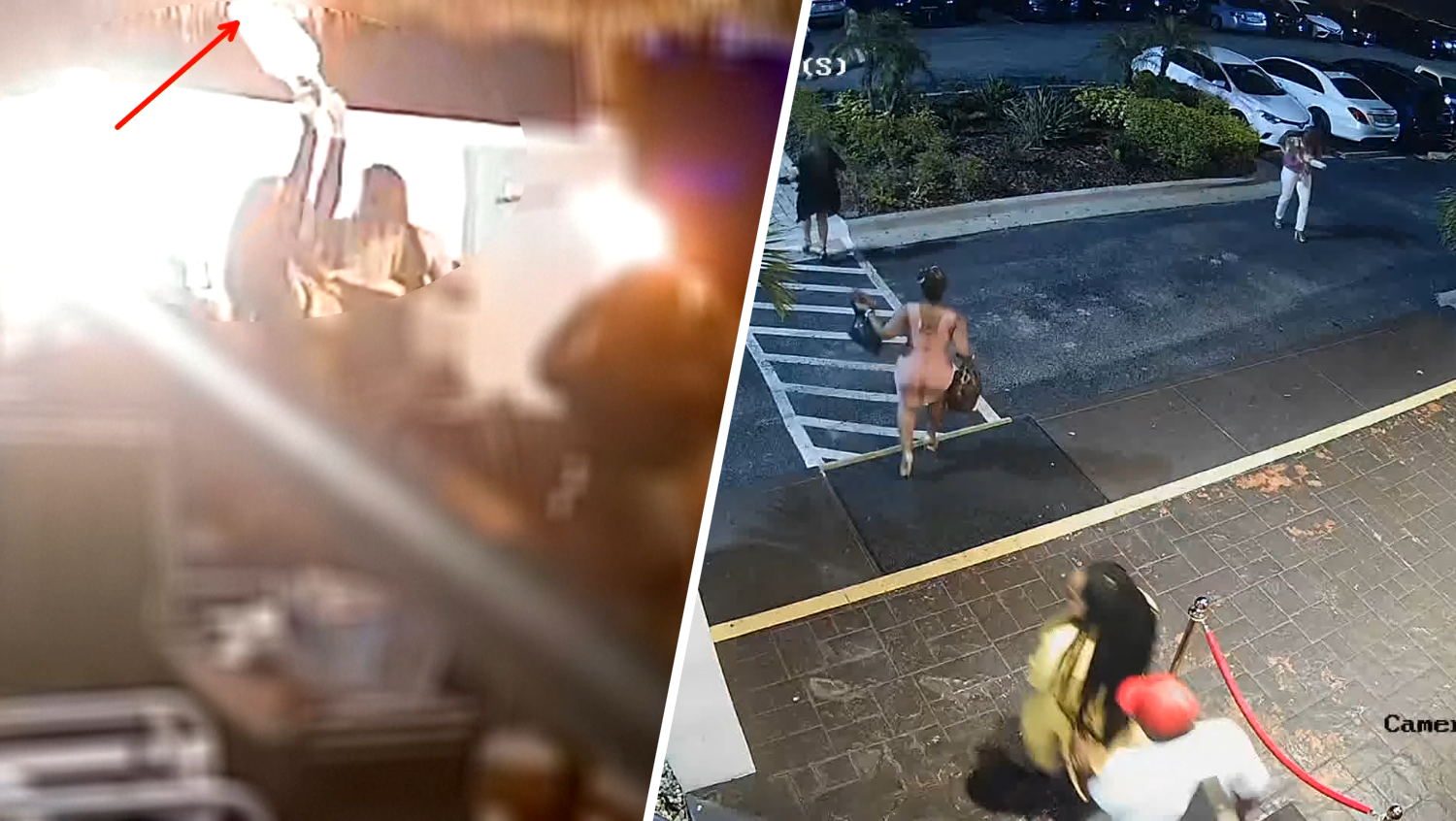The Republican chairman leading a Senate hearing into the country’s response to the coronavirus pandemic urged colleagues not to point fingers during Tuesday’s two-hour session.
Many of Lamar Alexander’s fellow senators on the Senate’s Health, Education Labor and Pensions Committee ignored him.
As Alexander, of Tennessee, stressed that even among experts there was widespread ignorance about the coronavirus as recently as the beginning of March, and tried to encourage finger pointing in the direction of improvements in pandemic preparedness, his Democratic counterparts were assailing the Trump administration’s actions as the virus spread.
Sen. Patty Murphy of Washington, the top Democrat on the committee, accused President Donald Trump of failing to tell the truth, of promoting unproven, dangerous medical treatments and tossing more detailed guidelines for restarting the economy from the Centers for Disease Control and Prevention into the trash bin.
Sen. Bernie Sanders, the independent from Vermont, said that Trump had fired members of the government who wanted to act aggressively, and Democratic Sen. Chris Murphy of Connecticut told the hearing’s four witnesses that they worked for an administration that undermined states’ efforts to follow their guidance.
"As Senator Murray mentioned, this is infuriating to many of us because it comes hours after the president declared that we have prevailed over coronavirus, which I’m just going to tell you is going to make it much harder on state leaders to keep social distancing restrictions in place," Murphy said. "It comes days after the president called on citizens to liberate their states from social distancing orders."
U.S. & World
Many Republicans focused questions on conditions in their states, with Sen. Lisa Murkowski asking how to keep Alaska from becoming a hot spot, Sen. Susan Collins wanting to know when dentists could reopen their practices in Maine and Sen. Pat Roberts of Kansas describing the dire state of agriculture there. Sen. Tim Scott described South Carolina’s plan to open up to praise from the best known of the witnesses, Dr. Anthony Fauci, the director of the National Institute of Allergy and Infectious Diseases, who called it "a model way."
Full-throated defenses of Trump were mostly missing.
Sen. Mike Braun of Indiana criticized what he called a stodgy approach to testing by the Food and Drug Administration and the Centers for Disease Control and Prevention.
"I’m tired of having it heard that it's the administration's fault," he said.
At the end of the hearing, Sen. Kelly Loeffler of Georgia asked the witnesses whether their relationship with Trump was confrontational and lacking consensus, as she said the mainstream media and some of her colleagues described it. All four denied the characterization.
Also testifying Tuesday were Dr Stephen Hahn, the director of the Food and Drug Administration, Admiral Brett Giroir, a doctor who is the assistant secretary of health, and Dr. Robert Redfield, the director of the Centers for Disease Control and Prevention.
Fauci warned of dangerous consequences if states tried reopen businesses, schools and other institutions too quickly. Not only would what he called "little spikes" turn into outbreaks but the economy would suffer a setback, he said.
Trump and many Republicans have been pushing to restart the country’s economy, even in places that have not shown what experts say are necessary trends to do it safely. Among the guidelines from the White House: a 14-day decrease in the number of documented COVID-19 infections.
On Monday, Trump said that the number of coronavirus cases was falling “almost everywhere” even as an unreleased White House report showed rates spiking across the country, NBC News reported.
"We have met the moment and we have prevailed," Trump said.
But in an answer to a question from Democratic Sen. Elizabeth Warren of Massachusetts, about whether the coronavirus was contained, Fauci said, "If you think that we have it completely under control, we don’t."
Some places such as New York City are starting to see a decrease in the number of new cases but other cities are seeing them rise, he said.
"So I think we're going in the right direction, but the right direction does not mean we have, by any means, total control of this outbreak," he said.
Fauci agreed with Sanders that the official statistics could be undercounting the number of fatalities in the United States — now at more than 80,000 deaths, a tally some on the right have started to suggest has been over counted.
"I think you are correct that the number is likely higher," Fauci said but was not sure that the death rate was as much as 50% greater as Sanders asked.
There could be a resurgence of the virus in the fall, Fauci said, but hoped that the country would be much better prepared by then in terms of testing, and personal protective equipment and would fare better.
Fauci had a sharp exchange with Sen. Rand Paul of Kentucky, who said that the near absence of deaths among children should be part of the discussion of when and how to open schools and claimed what he called a "relatively benign course" nationwide for the virus outside of New England. New York and New Jersey have been the epicenters of the virus in the United States.
"So I think we ought to have a little bit of humility in our belief that we know what’s best for the economy," he said. "And as much as I respect you, Dr. Fauci, I don’t think you’re the end-all, I don’t you’re the one person that gets to make a decision. We can listen to your advice but there are people on the other side saying there’s not going to be surge and that we can safely open the economy."
Fauci responded that he had never made himself out to be the "end-all."
He said that he gave advice based on the best scientific evidence and let others talk about the economy and then latched onto Paul’s use of he word humility.
"We don’t know everything about this virus," he said. "And we really better be very careful, particularly when it comes to children, because the more and more we learn, we’re seeing things this virus can do that we didn’t see from the studies in China or in Europe."
Up to five children have died in New York and another 100 are suspected of having a rare inflammatory syndrome that seems to be associated with COVID-19. The illness is known as pediatric multi system inflammatory syndrome.
"I think we better be careful, if we are not cavalier in thinking that children are completely immune to the deleterious effects," Fauci said.
Other tense exchanges involved Democratic Sen. Bob Casey from Pennsylvania, who demanded to know from Redfield when the country would see information about cases in nursing homes, and Republican Rep. Sen. Mitt Romney of Utah, who criticized Giroir for earlier praising the country’s testing efforts.
"I understand that politicians are going to frame data in a way that's most positive politically — of course, I don't expect that from admirals," Romney said. "But yesterday, you celebrated that we had done more tests and more tests per capita than even in South Korea, but you ignored the fact that they accomplished theirs at the beginning of the outbreak."
Romney said that by March 6, South Korea had conducted 140,000 tests to the United States' 2,000. One result is that South Korea had only 256 deaths to 80,000 in the U.S.
"I find our testing record nothing to celebrate whatsoever," Romney said.
Romney elicited from Fauci that neither Trump nor former President Barack Obama was responsible for the coronavirus crisis.
"The president said the other day that President Obama is responsible for a lack of a vaccine," Romney said. "Dr. Fauci, is President Obama — or by extension President Trump — did they do something that made the likelihood of creating the vaccine less likely?"
"No senator, not at all," Fauci said. "Certainly President Obama nor President Trump are responsible for our not having a vaccine."



